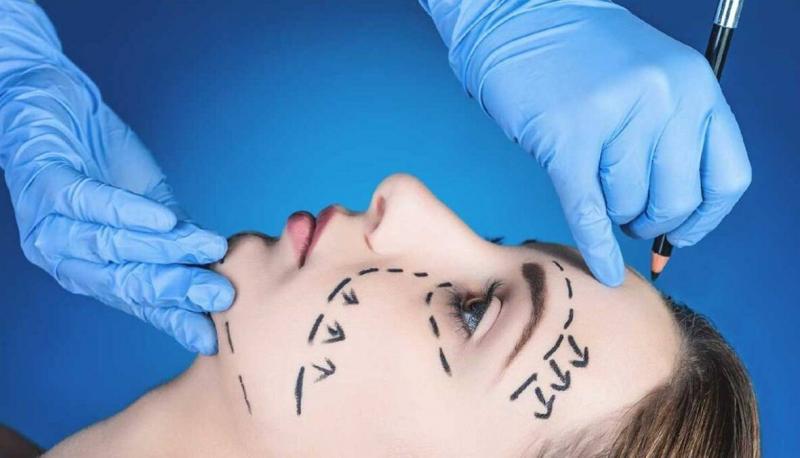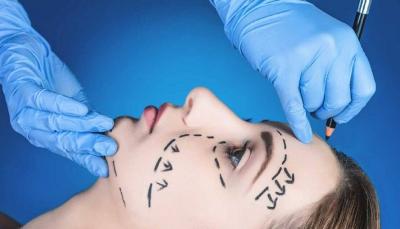Beauty clinics in Syria are witnessing an unusual crowd that ordinary people struggle to explain. Contrary to the deteriorating economic and living conditions, there is a surge in beauty centers proliferating across the country. Statements from plastic surgeons and officials in the Syrian Ministry of Health indicate an increasing demand for cosmetic surgeries in Syrian clinics and beauty centers, despite the prices being significantly high compared to modest salaries that barely meet the basic needs of families.
This strange paradox can be highlighted by an equation stating that 90% of Syrians live below the poverty line, with average wages not exceeding 400,000 Syrian Lira per month (less than thirty dollars), while cosmetic surgery prices range from 1 to 20 million Syrian Lira. A psychological explanation has been provided by researchers, suggesting that this phenomenon is not unique to Syria, as many communities have experienced similar trends, commonly referred to as "the lipstick effect."
Sahar, an employee at an insurance company in the capital Damascus, shared, "Beauty is contagious... although I never thought I needed it, when I saw my friend's eyelids and forehead and how her appearance changed, making her look ten years younger, I couldn't resist." She added, "Anyone who tries cosmetic procedures will repeat them every few months." The single woman in her thirties admits, "I now inject Botox around my eyes and forehead every six months... I save money to do this. I can no longer give it up... it has become an addiction."
Meanwhile, Mays, who is too young for a facelift at just twenty with a youthful appearance, believes her face needs Botox to prevent wrinkles. She waited for her turn at the beauty clinic for a procedure that wasn’t even necessary, justifying her decision by saying that her friends did the same.
Taysir Hassoun, a psychiatrist and consultant with the World Health Organization, points out that the rise in cosmetic surgeries in Syria might be one of the outcomes of the war; the increase in the number of females relative to males has led to heightened competition among women. Hassoun notes, "We must distinguish between two concepts; reconstructive and cosmetic surgeries. Reconstructive surgeries are necessary and decided by the doctor, while in cosmetic surgeries, the roles are reversed; the patient decides, not the doctor."
He observed that cosmetic surgery is the medical field most linked to advertising, leading it to thrive as a largely consumer advertising material. He expressed concern that "advertising for a new nose has become like buying a dress."
Despite the expansion of the beauty market and the prevalence of its centers in all Syrian cities, there is no substantial income generated for the national economy from cosmetic surgeries and related procedures. Even revenue that could potentially come from Arab nationals traveling to Syria for such operations, referred to as medical tourism, hardly contributes to the Syrian economy.




